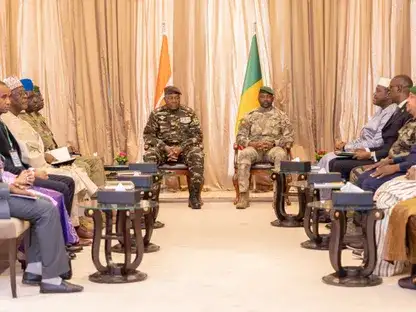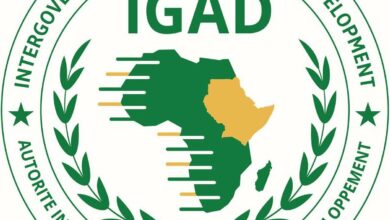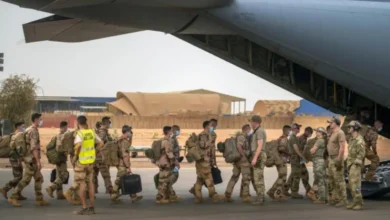Niger’s transitional chief visits Mali

Niger’s transitional president General Abdulrahman Tiani met with his financial counterpart Colonel Assimi Gueta during his presence in the capital Bamako on his first foreign visit since the coup against former President Mohamed Bazoum last July 26.
On Thursday morning at the international airport, Colonel Guetta received his Nigerian counterpart, General Tiani, the President of Finance said.
The Alliance of Sahelian States indicated that Tiani would then travel to Ouagadougou. The Alliance includes Mali, Niger and Burkina Faso, States governed by military councils that came to power through coups d ‘état.
The Alliance is working to “establish inter-agency assistance in the event of a violation of sovereignty and territorial integration of the three States as well as to strengthen their economic relations.
Since Tianyi came to power, Mali and Burkina Faso have declared their solidarity with Niamey’s military junta and threatened to support it in the event of any external interference.
International Pressure
The three regimes are united in the face of international pressure to return to the former regimes of government, especially by France’s former colonial power. It was forced to withdraw its forces from there as its influence in Africa declined.
ECOWAS and the West African Monetary Union suspended Niger’s participation in the regional financial market and the regional central bank following the coup d ‘état that ousted President Mohamed Bazoum.
ECOWAS imposed severe economic and financial sanctions on Niger’s military junta, including the denial of access to State accounts with the Regional Central Bank, and threatened the use of force to restore constitutional rule.
In the middle of this month, Niger defaulted on interest and debt totalling CFA francs 187.136 billion ($304 million).
The West African Regional Debt Management Agency said in a statement that Niger had defaulted on other debt interest worth some CFA francs 2.464 billion ($4 million).
US President Joe Biden announced his intention to end the participation of Gabon, Niger, Uganda and the Central African Republic in the trade program called the Africa Growth and Opportunity Act (AGOA).
For the Niger and Gabon, it was due to the failure to lay the groundwork or to make sustained progress towards protecting political pluralism and the rule of law.





